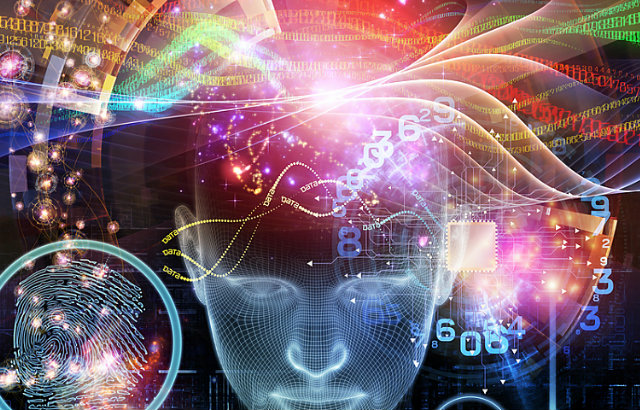
How will the digital customer experience evolve in the next years? What kind of technology will leave the deepest mark on customers’ life? How will this mark affect your business strategy?
Prediction is a delicate and dangerous art but, when it comes to predicting the future of customer experience, Brian Solis is a top choice. At the beginning of every year, in fact, the digital analyst takes a look at what lies ahead, trying to figure out which technology trends will lead the new wave of digital transformation.
“Because it is focusing on customers, digital transformation is actually in its own way making businesses more human.” (Brian Solis)
Digital transformation is the main focus in Solis’ articles and blog posts, often connected with ‘Digital Darwinism’, one of the most important terms introduced by the author years ago. The idea is that human behaviors and technology evolve together, and businesses usually struggle to keep the pace.
When disruption happens, it always creates threats and opportunities; technology is the catalyst for the revolution of markets and society. Moreover, any technological advancement brings in the evolution of our behaviors (as human beings and customers), expectations and desires.
When you connect the dots, you realize that we have witnessed the emergence of a new generation of customers. They are empowered, demanding and submerged into a digital ecosystem. They are the digital customers.
The dawn of the digital customer is forcing a refocus towards the customer experience, and innovative companies are already working to integrate this fundamental asset into their digital strategy:
"50 percent of consumer product investments will be redirected to customer experience innovations by 2017." (Gartner)
With new technologies come new behaviors, and from new behaviors inevitably derives the evolution of the customer journey, that defies standards and unravels across different digital and physical touchpoints.
Now that customers show peculiar purchase paths and behaviors, you need to assume an approach of constant innovation if you want to engage and understand them.
Competing solely on products, price or features is not sufficient to gain a competitive edge. The new rules of engagement demand that you invest and work to deliver a memorable and unique digital customer experience.
We could not agree more with Brian Solis when he says that, in this time of Digital Darwinism, you only have three choices:
- Business as usual - a refusal or denial of evolution, that will ultimately lead to irrelevancy.
- Business for the moment - the choice of those that wait and then follow trends and behaviors.
- Business for the future - the proactive proposition to improve and deliver a meaningful experience.
The race to success has become a competition for relevance. This wind of digital transformation is changing priorities, even for traditional industries.
The primary reference for this article is the report titled “26 Disruptive & Technology Trends 2016 - 2018”. Brian Solis’ analysis includes socioeconomic and pure technological trends, both indissolubly correlated: technology is the main driver of social and economic disruption; at the same time, the evolution of behaviors and tastes forces tech innovation in turn.
We have chosen insights from both categories, creating our list of the top 8 disruptive trends that'll shape business in the next future.
THE NEW BRAND
What is the most critical element to define a successful brand? Not the product, not the legacy. Customer experience is the real brand differentiator in digital markets. The experience becomes a responsibility of the entire organization, not just a marketing tactic or a service department.
ON-DEMAND ECONOMY
Since we have finally gone beyond the idea of sharing economy, you need to realize that the answer to customer’s demands is called ‘personalization’. The on-demand economy is based on the ability to deliver the right content when and where it matters most, across the different touch points of the customer journey.
DYNAMIC CUSTOMER JOURNEY
The mobile shift has brought one major consequence: customers now live online and offline at the same time. Thus, the customer journey cannot be reduced to a linear sequence of mandatory steps. It looks like a puzzle of micro moments, mostly lived through the mediation of the smartphone. This requires a new approach to marketing and engagement.
EMPATHY TRANSFORMATION
In the mid-term, none can escape the digital transformation. Every single company must face it, and every single industry will come out of it transformed. It might seem fearsome but, if you look at the whole picture, you will see the invaluable opportunity to realign your business model around what is really important: the customer and his/her experience.
CONVERSATIONAL COMMERCE
The focus on digital customer experience involves not just a business process. It implies a complete revision of your ‘modus operandi’, starting from customer’s point of view. In an increasingly automated ecosystem, customers demand a more human relationships with the brand in every moment of truth. Conversational Commerce is the result of the human algorithm of DCX.
THE NEW MOBILE WEB
The launch of the latest updates of Google’s search engine algorithm - exemplified by the Mobilegeddon - states a fact: the Internet is revolutionizing our life again, by simply coming out of our houses. Today, the smartphone is the main reference when customers have to decide what and where to buy, and the web has become more dynamic, personal, contextual and useful.
THE NEW MACHINE AGE
What is the purpose of machine learning? Is it just a matter of business efficiency and revenues? Amazon uses it to identify consumers’ preferences, but we will likely soon see an evolution in the use of intelligent machines. More than one evolution, in fact: behavioral analysis, artificial intelligence, predictive analysis, the Internet of Things, smart data.
VIRTUAL EXPERIENCE
The debate about the real value of virtual reality and augmented reality for marketing purposes is still alive, but the spread of VR devices suggests that there is still lot to explore. The entertainment industry might still be the reference market but customer experience is the most promising field. Gamification dynamics, employee engagement, loyalty programs are just few examples.
Here is the original SlideShare presentation by Brian Solis, if you want to know more about the topic.
To help you provide a strategic advantage to your organization, Neosperience has crafted the first DCX 7-Steps Checklist, with requirements and insights for a successful digital transformation. Download the free guide here:



 Your magnifing glass to deeply understand your users and increase the value of each relatonship.
Your magnifing glass to deeply understand your users and increase the value of each relatonship. Listen to the voice of your customers deeply to understand what they truly want.
Listen to the voice of your customers deeply to understand what they truly want. The Lead Generation Platform to get leads from anonymous traffic on your website.
The Lead Generation Platform to get leads from anonymous traffic on your website.  Understand the behavior of people in physical spaces and monitor safety requirements.
Understand the behavior of people in physical spaces and monitor safety requirements. The Digital Commerce Platform designed to follow the most modern technological standards..
The Digital Commerce Platform designed to follow the most modern technological standards.. The XReality platform to tell brand and product stories by connecting physical and digital worlds.
The XReality platform to tell brand and product stories by connecting physical and digital worlds. Points, rewards, levels, badges, missions: a world of nudges to nurture your customer community.
Points, rewards, levels, badges, missions: a world of nudges to nurture your customer community. Discover all the other solutions!
Discover all the other solutions!









